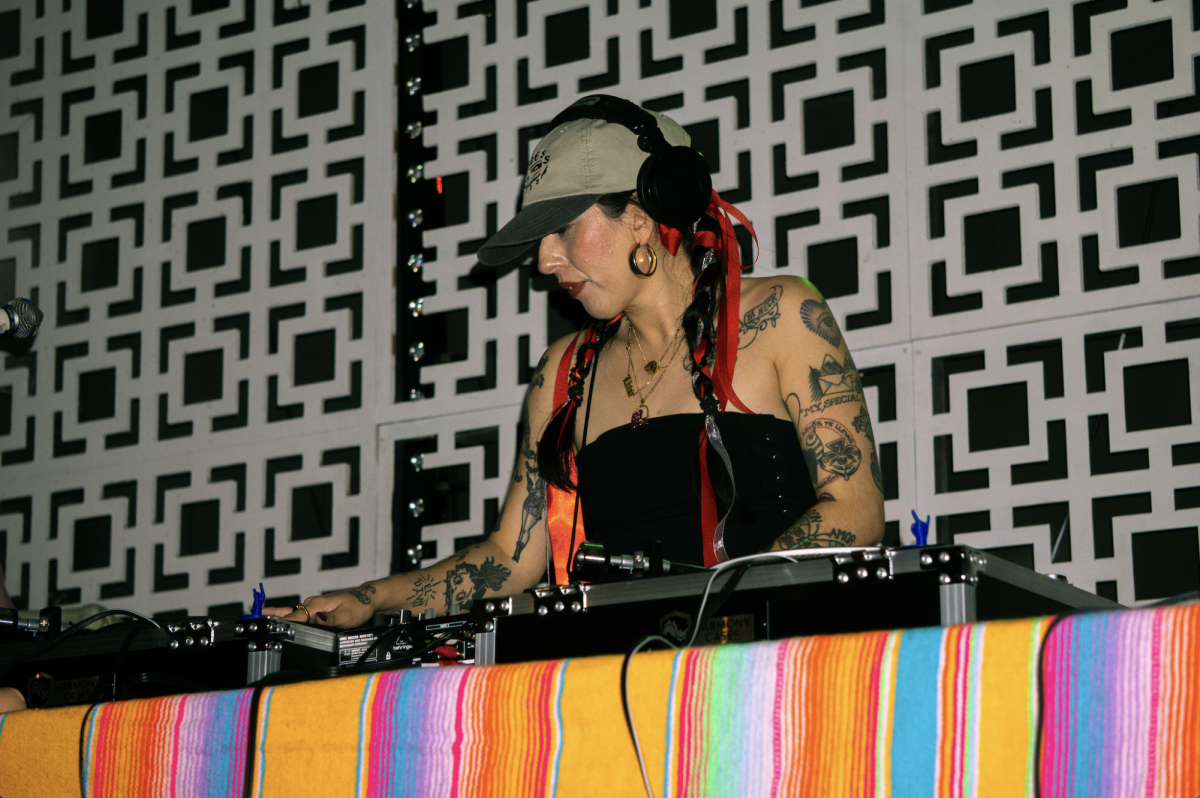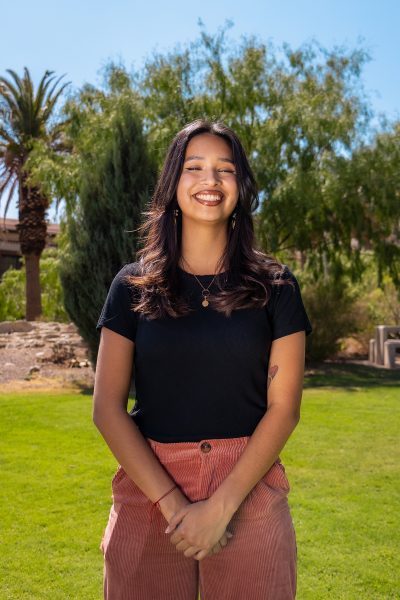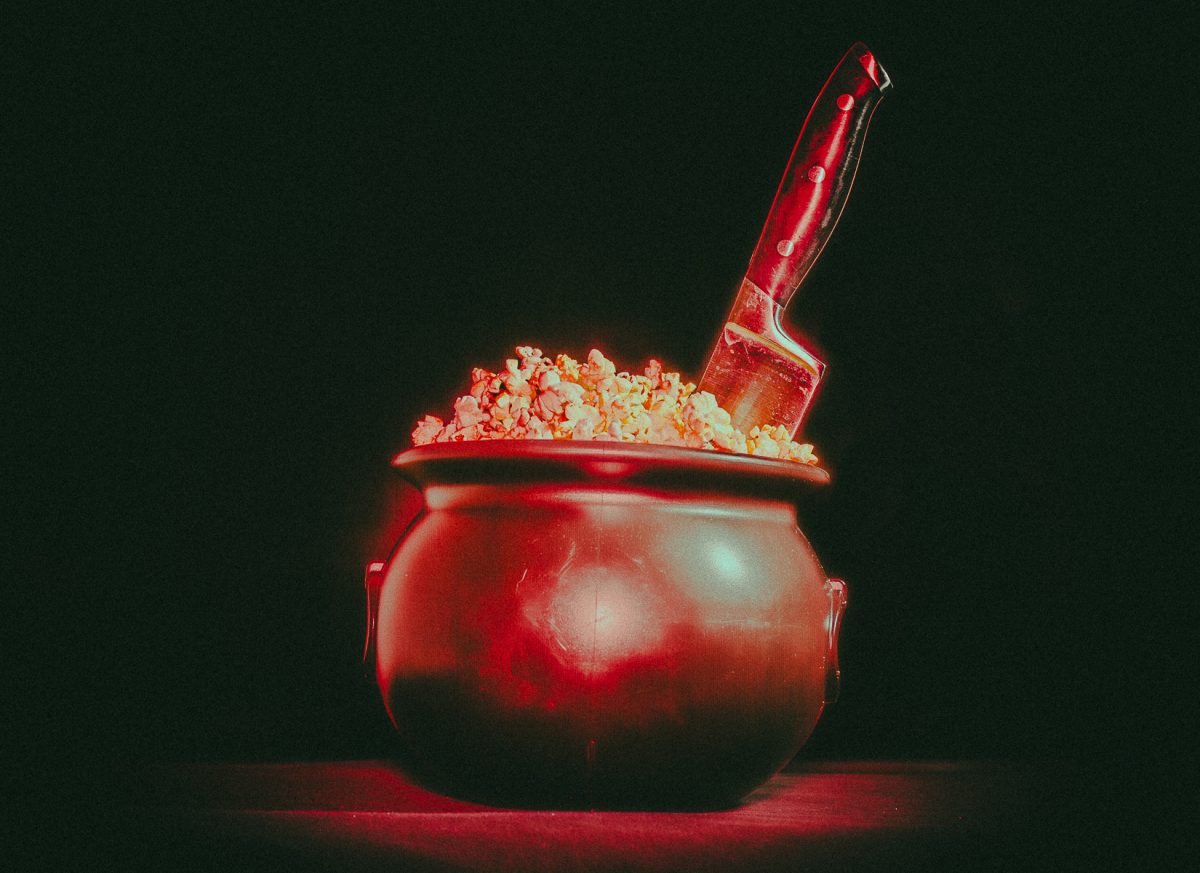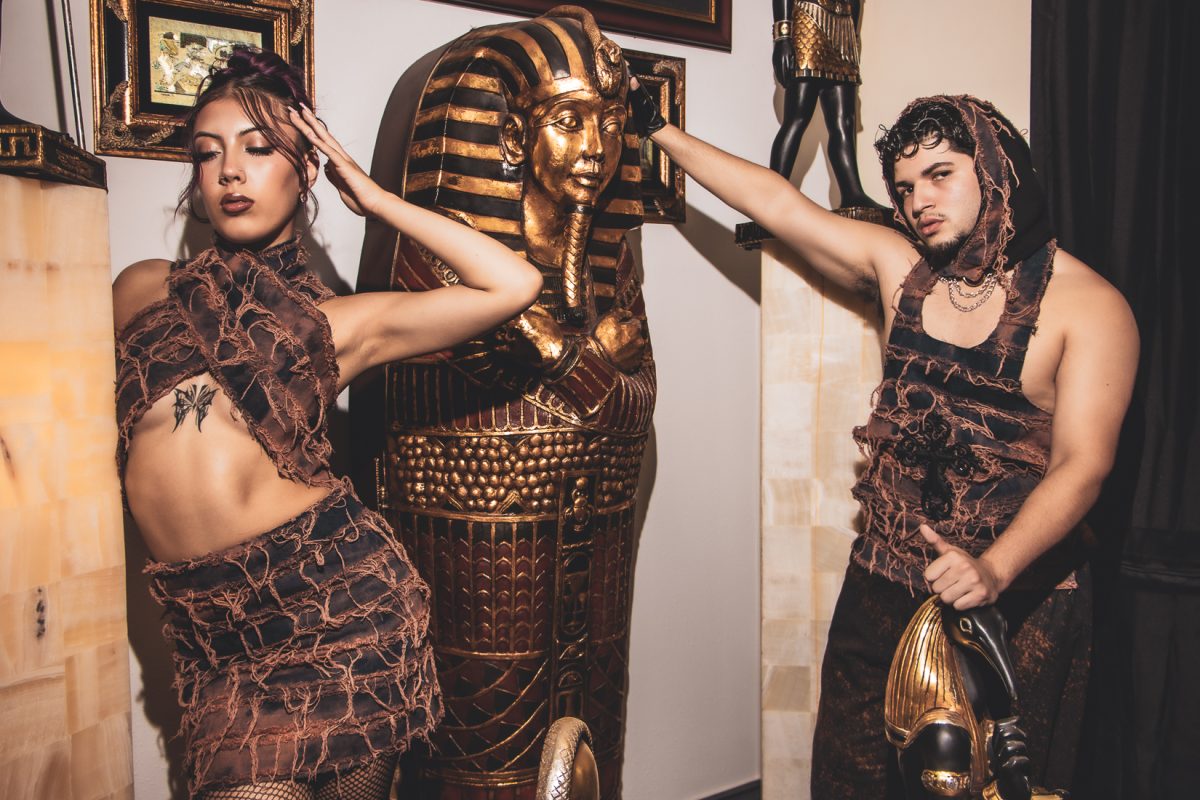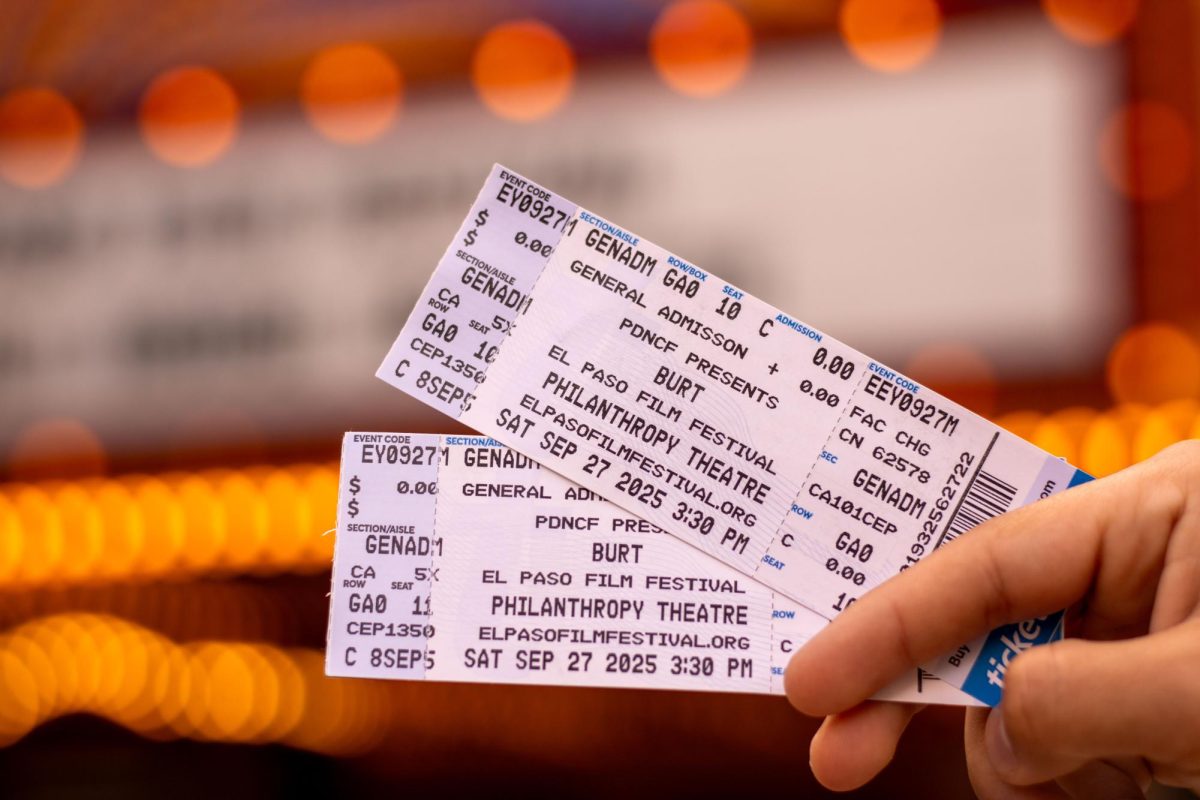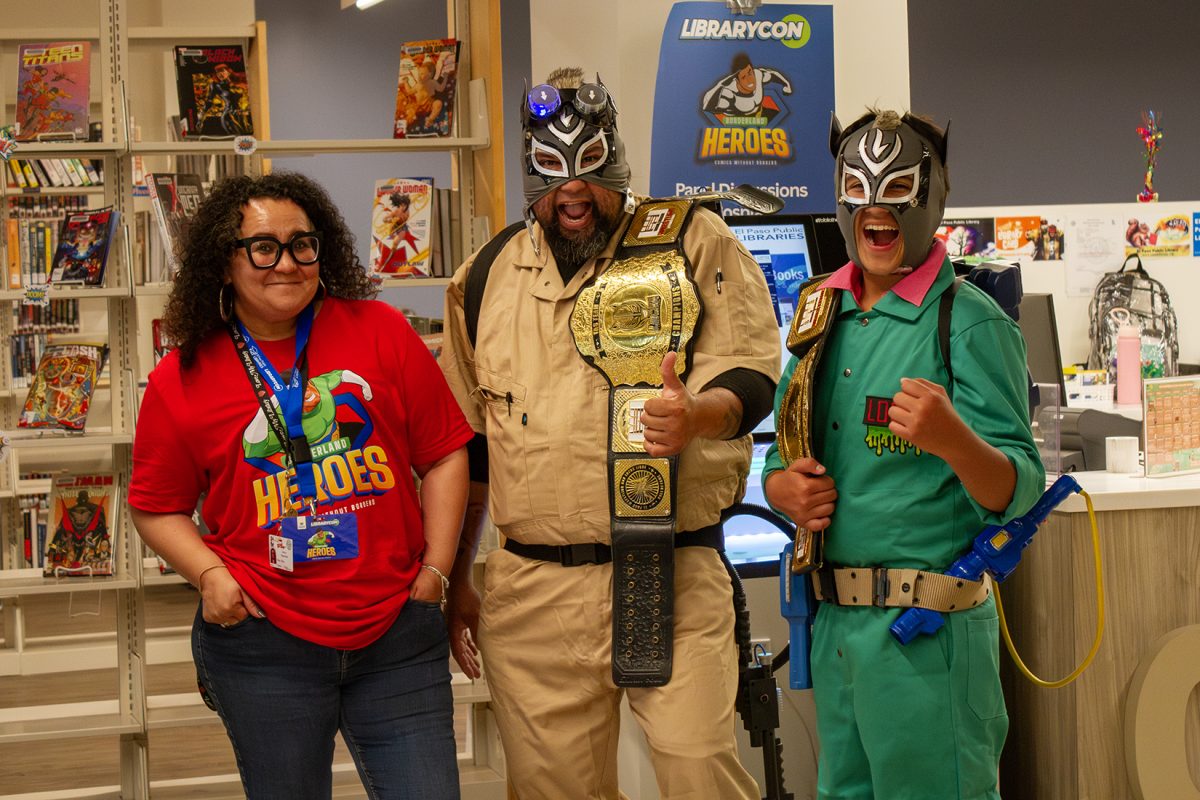With El Paso sitting right on the Southern Border, many say it makes for an interesting blend of cultures.While the Bordertown produces unique art, food and music, El Paso’s nightlife is lit up by DJs whose passion for music creates a connection with the binational culture.
Whether they’ve been mixing for years or are up and coming in the nightlife scene, these DJs all share a connection to the border culture which they express in their art during unprecedented times or simply to get people to have fun and connect.
DJ Topo Chica, 34, has been mixing for seven years with a particular passion for cumbia. She started with playing small sets at her old place of employment as an opportunity to attract a crowd.
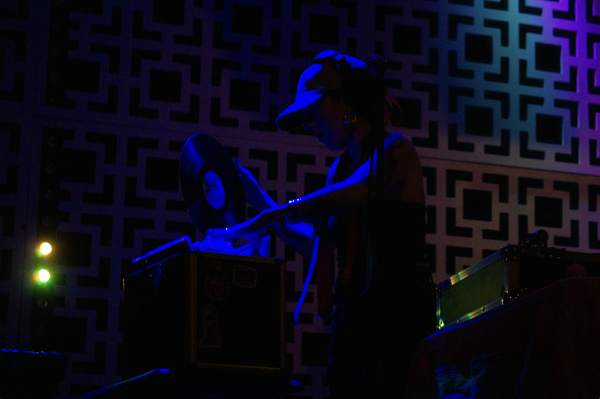
Music has always been a part of Topo Chica’s upbringing. She says cumbia was heard on the streets, in clubs and vinyl records that spun in her grandparents’ living room. She feels El Paso’s creative community has embraced her and her music, which resonates with many because it feels so close to home.
“I’ve been so community based in my life… I just always felt like everyone was always supportive of each other and support is not something that’s been lacking in my life,” Topo Chica said.
Topo Chica says there’s a responsibility she feels when it comes to keeping her roots alive through her craft and even taking them outside the El Paso city limits, as she recently expanded her talent to New Mexico.
“When we play Latin music, we are taking it outside our walls. It’s travelling to other people and they’re having this understanding of being like ‘Oh wow. This is soulful.’” Topo Chica said. “We don’t want [culture] to die. We want the next generation to understand this is the roots of now.”
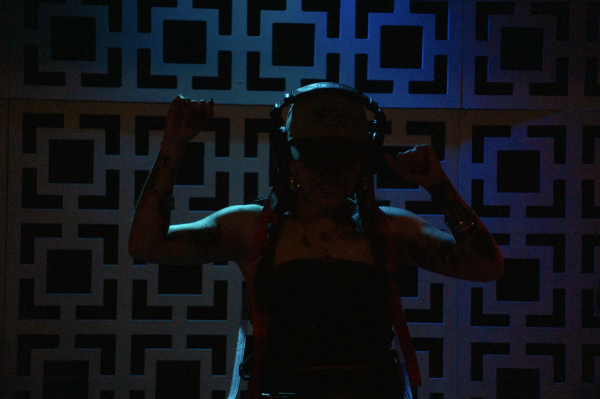
Mixed mediums of art during DJs’ sets also allow for El Paso’s nightlife to light up with layered intricate aspects of culture.
DJ of five years AC Rudo, 38, presents himself with a blue and red luchador mask and prides himself on his mix of fashion and music through his art. The mask is a representation of his roots as his grandfather was once a luchador himself.
“The whole point is I want to align culture with music and fashion. That’s my main objective… that’s what I’m bringing with the mask,” AC Rudo said.
Rudo says he is the son of immigrants, which alters the perspective of his art. This has led to making political stances during sets which he feels come from a place of love, experience and empathy. “I took a chance, and I made a shirt that said [political phrases] and I wore it on stage… I thought I’d get backlash, but I was playing in front of the raza… everyone has the same feeling of wanting to say something and stand up for family,” Rudo said.
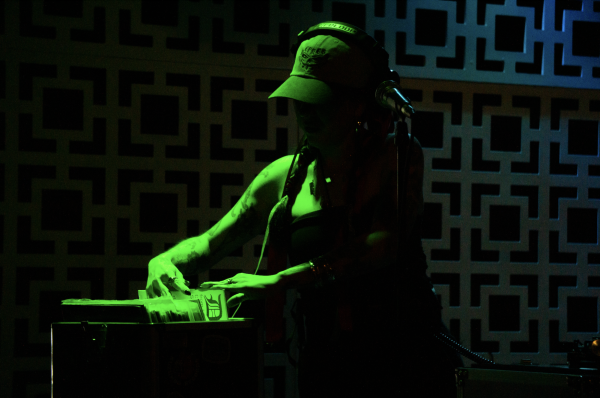
Diversity is a key aspect of life for AC Rudo as he feels the mere act of existing within one’s culture is an act of activism.
“You can be political with showing your culture—any culture. I think now people should put that out there more. Put your culture on your clothes, accessories, and anything that identifies you and your family, wherever you come from,” AC Rudo said.
With the adversities that Latino-Americans face, from subtle microaggressions to tragic acts of hate, some feel that the arts and music is a true healer.
Beja, 29, has been in El Paso’s DJ scene since 2016. Beja says he’s experienced first-hand the way music heals a community. He experienced the energy in the room as his DJ duo, The Swell Kids, opened for Kahlid at the El Paso Walmart shooting benefit show on Sept. 1, 2019.
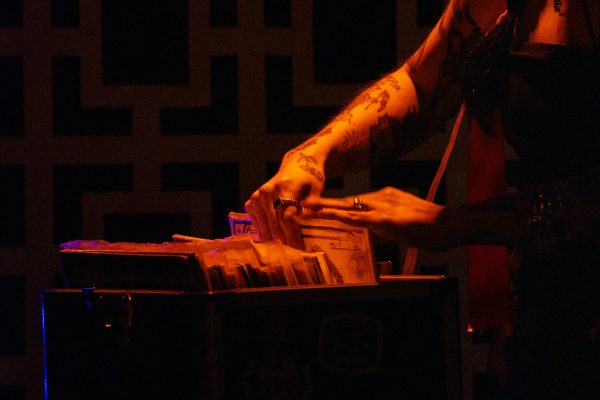
“I remember, after playing, walking into the crowd and there was an older gentleman that pulled me aside… He was like, ‘I wanted to say I think what you did was amazing. I lost my son at the Walmart shooting. He would’ve loved to see you guys perform. I had a good time seeing you guys up there because you remind me of him.’ That’s something I didn’t even realize I was doing for someone,” Beja said.
Beja says that although making it as an artist involves a lot of hustle, true artists produce what they love because of passion and not because of who’s watching. However, he says one of the truest rewards is healing interactions.
“That’s what I truly feel what art is,” Beja said. “It’s the human connection that you get with people. Whether it’s a photo, music, a body of work—if you can connect with just one person and it can make them resonate, that’s why you do what you do.”
The speakers continue to bump every weekend as El Paso’s DJs keep filling rooms with love and noise. A personal need for the continuance of culture and healing from the prejudice El Paso has experienced keeps many artists going even in the most unprecedented times.
End credit: Jesie Garcia is the arts and culture editor and may be reached at [email protected] or on Instagram @empanadaslens.

